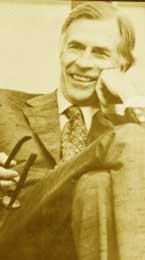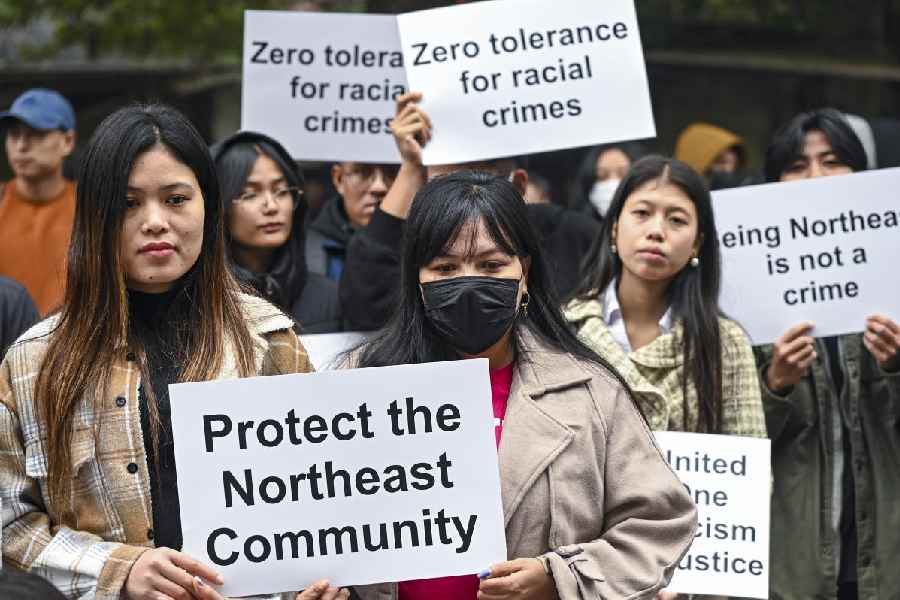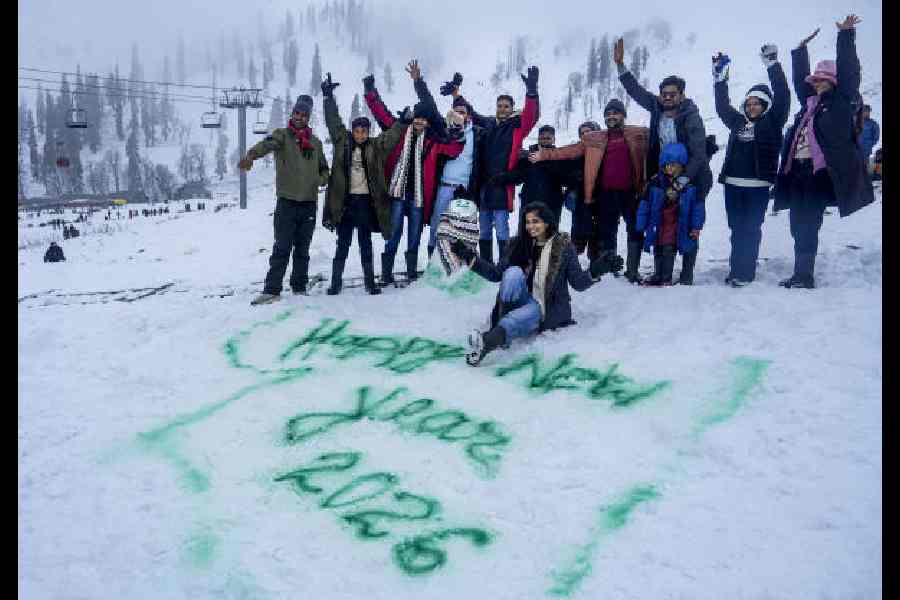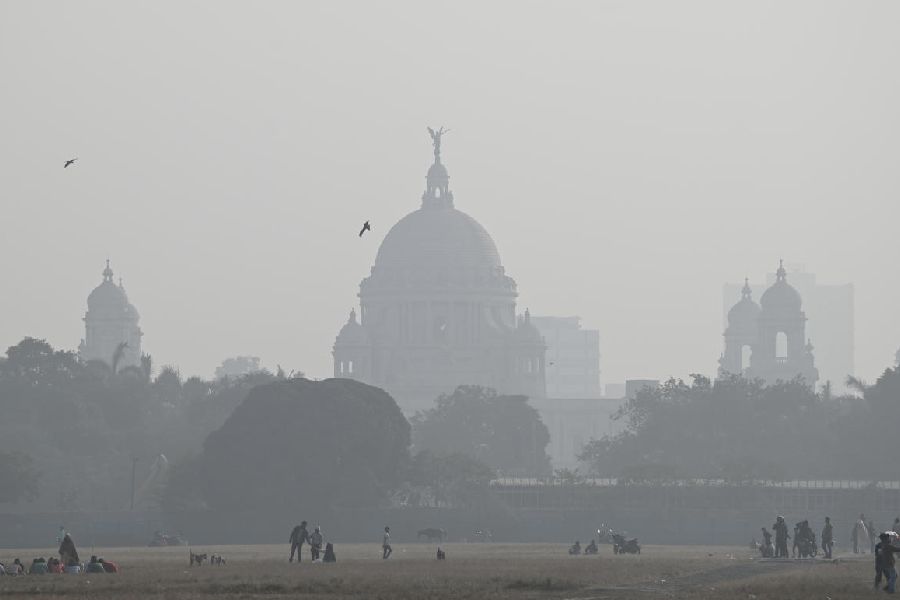|
|
| A matter of commitment |
John Kenneth Galbraith was, if not the most influential, certainly the most imposing of all American ambassadors to India. He commanded attention because of his height ? he stood six feet seven inches in his socks; his erudition ? although a professor of economics, he was widely read in literature and history, and knew a great deal about art besides; and his eloquence ? at a public meeting, he could speak for an hour without notes, then go back home and, before going to bed, write a three thousand word essay on what he had just said. To add to all this was a sparkling wit ? unusually for an American, Galbraith was capable of making fun of himself. This may have been because he was born a Canadian; in any case, his best jokes were usually at the expense of his (political or academic) rivals.
Galbraith first came to India exactly 50 years ago. This was at the invitation of Prasanta Chandra Mahalanobis, whom he met at a dinner party in Geneva, hosted by their common friend, the British economist, R.F. Khan. Here the Indian planner asked Galbraith to visit India and advise on the process of planning. He agreed at once. For, as he later wrote in his memoirs, men like Mahalanobis represented ?a world in which decency, compassion, and wide-ranging intelligence were combined with the belief that the nature of the economic order is, above all, a matter of moral commitment?. Galbraith himself believed that ?men and women of such decency deserve to be right?.
Galbraith and his wife Kitty spent two months in India, visiting Calcutta, Delhi and Bombay on work; and Benares and Kashmir, for pleasure. The economist was struck by the Indian intelligentsia?s romance with the idea of socialism. As he wrote in an essay published in Foreign Affairs, ?the Indian commitment to the semantics of socialism is at least as deep as ours to the semantics of free enterprise? Even the most intransigent Indian capitalist may observe on occasion that he is really a socialist at heart.? Some of this commitment he approved of, for as an unreconstructed New Dealer he believed in a fairer distribution of income himself. However, he was disappointed to find that in the great public-sector enterprises then being fashioned, socialism had come to be identified with control by the bureaucracy and the political class. He thought that a greater emphasis should be placed on productivity and efficiency for which, of course, netas and babus would have to quickly abdicate in favour of professional managers.
Four years after Galbraith visited India, his friend and fellow Harvard man, John F. Kennedy, was elected president of the United States of America. In his memoirs (published in the Eighties), he claimed that he had so fallen in love with this country that on that first trip itself he had told his wife: ?When the Democrats get back in, I think I will get myself appointed ambassador to India.? Kennedy offered him the job shortly after moving into the White House. This, some said, was not because Galbraith was the best candidate or because he wanted the assignment, but because the president felt that at home Galbraith would be a nuisance, peppering him with notes and memoranda on how best to run the economy or reform the Democratic Party. In other words, Kennedy sent the Harvard professor away to India simply to protect himself.
Galbraith was to spend two years in New Delhi, his stay described in An Ambassador?s Journal, which, his biographer tells us, was the fattest of the many books he wrote. At any event, it is consistently readable, with its portraits of Indian politicians such as Morarji Desai (whom he respected), Krishna Menon (whom he detested), Indira Gandhi (whom he liked), and Jawaharlal Nehru (whom he adored). There is a long and lyrical description of the trip made during his tenure by the First Lady, the beauteous and brilliant Jacqueline Kennedy, reading which one gets the sense that Galbraith was at least half in love with her (as, perhaps, was Nehru). There are more sombre accounts of the two battles fought by the Indian army while he was in New Delhi, the first an easy victory over the Portuguese in Goa, the second the humiliating defeat at the hands of the Chinese. It was after this latter war that Galbraith played a critical role in providing American military assistance to India.
In 1963, Galbraith returned to Harvard, where he resumed the life of an academic, teaching and writing books, these, as before, on the American economy. But he retained his interest in India. In the archives in Delhi, I found a fascinating letter that he wrote Indira Gandhi. It is dated December 20, 1971, that is, just after the end of the war between India and Pakistan. Here Galbraith assured his friend, the Indian prime minister, that American public opinion was mostly with the Indians, for several reasons. First, because most Americans could see the connection between the inflow of several million refugees into India and the war itself. Second, because of the ?generally restrained behavior of the Indian soldiery and the absence of any post-game celebration?. Third, because of the decline of Cold War hysteria, and the new American alliance with communist China, which made India?s own treaty with the Soviet Union somewhat more palatable. And finally, because the war got over so quickly; and as ?the Six-Day War [between Israel and the Arab nations] showed and the Vietnam War showed in reverse, people find it easier to accord moral justification to short, successful wars?.
Galbraith ended his letter to the Indian prime minister with this magisterial prediction:
?I am very much of the opinion that these developments open up a much better prospect for the sub-continent than at any time in the last twenty years. West Pakistan will be much more prosperous without the East. The East Bengalis will be poor, but they will have to take more of the blame for that on themselves. The twenty year refugee movement will surely be at an end. And in the sub-continent generally, there will be something like the North American equilibrium. It may not be the best arrangement to have one large country with a coterie of smaller neighbors ? but at least it is a stable equilibrium. And, I venture to think, there will be one generally healthy effect in India. With Pakistan now a very small country, it will be no more possible to build a political career on opposition to Pakistan than on opposition, say, to Ceylon.?
The prediction was magisterial, and also magisterially wrong. For refugees have kept on coming into India from Bangladesh. And, far from being a ?stable equilibrium?, there is continuing resentment among the smaller countries of south Asia at India?s Big Brotherly pretensions. Finally, and most tellingly, it has been precisely in the decades since the dismemberment of Pakistan that a major political party has arisen and, indeed, come to power in India on the plank of opposition to that country.
I write this as a historian, whose job is to document the past, and who was taught by his teachers never to speculate about the future. Economists like Galbraith were under no such inhibition. And while he was wrong in this particular case, in other instances, his predictions have been validated. As a scholar, he warned that modern corporations, if not unchecked, would come to possess greater powers than nation-states; and that middle-class consumerism, if not unchecked, would come to pose a major threat to the integrity of the natural environment. As a diplomat, it was Galbraith who first saw, as early as 1963, the possibility of a India-US strategic partnership, this logical and necessary in itself (as the coming together of two great democracies), but also as an insurance policy against the over-weaning ambitions of China. In his last years, Galbraith must surely have been glad at this alliance of the two countries he most identified with. To be sure, he would much rather it had happened under his fellow Democrats.











